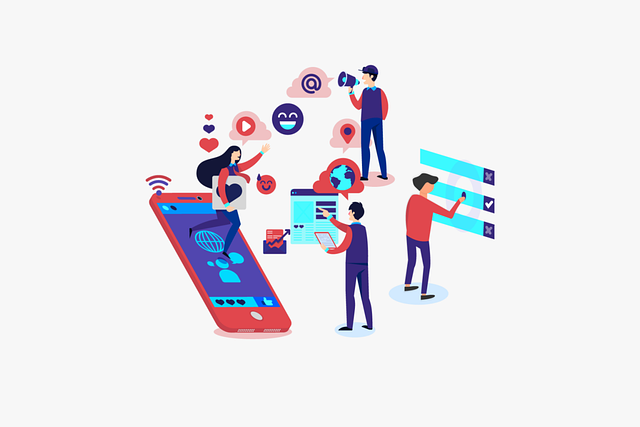You need to invest in the market – we know how.
We have the knowledge to help you. We can provide a strategy for your business and increase your sales and your position. Also, we will be honest with you. We will tell you exactly about the result of your investing. We will provide a complete analyze of your situation and give you the exact budget you need for your advertisement.
In the online type of digital marketing, you use channels that are on the web to introduce your brand and products and services to potential customers. Internet, applications, search engines, social networks and other digital tools are the channels through which you can reach your target audience.
There are different types of digital marketing channels. These channels are platforms that you can use to reach target audiences that are relevant to your brand, product or service and get closer to your marketing goals.
Purpose of business consulting
- Analysis of business and its competitors online
- Business improvement
- Understanding the target market and market segmentation
- Analysis and review of all online channels used by the business
- Analysis and review of the produced content.
- Developing a comprehensive digital marketing plan
- Advertising campaign design
- Digital marketing strategies to attract customers and increase sales
- Analyzing and suggesting appropriate keywords
- Detailed analysis and reporting of site performance
- Improving the conversion rate of visitors to customers
The nature of digital marketing
Digital marketing is the practice of promoting a good or service using online resources including search engines, social media, email, and websites. Reaching a targeted audience and converting them into consumers is the aim of digital marketing.
One of the biggest advantages of digital marketing is the ability to track and measure results in real-time. Marketers can see which strategies are working and which ones aren’t, allowing them to make adjustments and optimize their campaigns accordingly. This level of data-driven insight was not possible with traditional marketing methods.
Another advantage of digital marketing is its reach. The internet has a global audience, so a digital marketing campaign can target people all over the world. Social media platforms, in particular, have billions of users, making them a powerful tool for businesses looking to expand their reach.
Digital marketing also offers a range of options for businesses of all sizes. For example, small businesses can use social media and email marketing to reach a local audience, while larger businesses can invest in more complex campaigns, such as pay-per-click advertising and programmatic advertising.
However, it is important to remember that digital marketing is not a one-size-fits-all solution. Different audiences respond to different channels and strategies, so it’s essential to understand your target market and choose the tactics that will be most effective for them.
In conclusion, digital marketing is a crucial aspect of modern business, offering a range of benefits over traditional marketing methods. With the ability to track results and reach a global audience, it’s no wonder that more and more businesses are turning to digital marketing to promote their products and services.

History of Digital Marketing
Digital marketing has evolved significantly over the past two decades. The earliest form of digital marketing can be traced back to the 1990s when the first banner ads were introduced. These ads were simple, static images placed on websites to promote products or services.
However, as the internet grew in popularity, so did the opportunities for digital marketing. In the early 2000s, search engine marketing (SEM) emerged as a popular strategy for businesses to improve their online visibility. SEM involves optimizing a website for search engines like Google to improve its ranking in search results.
The rise of social media platforms in the late 2000s and early 2010s further transformed digital marketing. Social media platforms like Facebook, Twitter, and Instagram provided businesses with new channels to reach out to their customers and create engaging content.
Today, digital marketing has become an essential part of any comprehensive marketing strategy. With the continued growth of the internet and the increasing adoption of mobile devices, digital marketing will only continue to evolve and become more important in the years to come.
Digital Marketing Strategies
Digital marketing strategies can be broadly categorized into three main categories: paid, owned, and earned media. Each strategy has its unique benefits and challenges, and businesses must use a combination of these strategies to achieve their marketing goals.
Paid Media
Paid media refers to any form of advertising that businesses pay for to promote their products or services. Examples of paid media include search engine advertising, social media advertising, display advertising, and sponsored content.
Paid media can be an effective way to reach out to a targeted audience and increase brand visibility. However, it can be expensive, and businesses need to carefully track their return on investment (ROI) to ensure that their advertising campaigns are cost-effective.
Owned Media
Owned media refers to any digital asset that businesses own and control, such as their website, social media profiles, and email lists. Owned media can be an effective way to build brand awareness and engage with customers on a more personal level.
However, owned media requires businesses to invest time and resources to create and maintain their digital assets. It also requires a long-term strategy to build a loyal following and maintain a positive online reputation.
Earned Media
Earned media refers to any mention of a business or its products or services that is generated by third-party sources, such as social media posts, online reviews, and press coverage. Earned media can be a powerful way to build brand credibility and increase trust among potential customers.
However, earned media is unpredictable, and businesses have limited control over what is said about them online. It also requires a strong online reputation management strategy to address negative reviews and maintain a positive brand image.

Tools of Digital Marketing
Digital marketing requires a wide range of tools and technologies to be effective. Here are some of the most popular tools used in digital marketing:
Search Engine Optimization (SEO)
SEO involves optimizing a website for search engines like Google to improve its ranking in search results. SEO requires businesses to research and target relevant keywords, create high-quality content, and build backlinks to their website.
Social Media Marketing
Social media marketing involves promoting a business’s products or services on social media platforms like Facebook, Twitter, and Instagram. Social media marketing requires businesses to create engaging content, interact with their followers, and run targeted advertising campaigns.
Content Marketing
Content marketing involves creating and sharing aluable, relevant, and consistent content to attract and retain a clearly defined audience. Content marketing requires businesses to develop a content strategy, create high-quality content, and distribute it through various channels, such as their website, social media, and email marketing campaigns.
Email Marketing
Email marketing involves sending targeted, personalized emails to a business’s subscribers to promote their products or services. Email marketing requires businesses to build an email list, create engaging email content, and segment their subscribers based on their interests and behavior.
Pay-Per-Click (PPC) Advertising
PPC advertising involves placing ads on search engines, social media platforms, or other websites and paying for each click on the ad. PPC advertising requires businesses to research and target relevant keywords, create compelling ad copy, and monitor and optimize their campaigns to maximize ROI.
Analytics and Reporting
Analytics and reporting tools allow businesses to track and measure the performance of their digital marketing campaigns. These tools provide valuable insights into the effectiveness of different marketing strategies, which businesses can use to optimize their campaigns and improve their ROI.

Future of Digital Marketing
The future of digital marketing is likely to be shaped by emerging technologies and changing consumer behavior. Here are some trends that are likely to shape the future of digital marketing:
Artificial Intelligence (AI)
AI is likely to play an increasingly important role in digital marketing. AI-powered tools can help businesses automate routine tasks, such as content creation and email marketing, and provide personalized experiences to customers based on their preferences and behavior.
Voice Search
Voice search is becoming increasingly popular as more consumers use voice-enabled devices like Amazon Alexa and Google Home to search for information and make purchases. Businesses will need to optimize their content and advertising strategies to account for voice search queries.
Video Marketing
Video marketing is becoming more important as consumers increasingly prefer video content over other types of content. Businesses will need to create high-quality video content and distribute it through various channels, such as social media and YouTube, to engage with their audience.
Privacy and Security
Privacy and security concerns are likely to become more important as consumers become more aware of data breaches and other online threats. Businesses will need to prioritize data privacy and security to build trust with their customers and protect their reputation.
Conclusion
Digital marketing has become an essential tool for businesses of all sizes to reach out to their customers and create a strong online presence. Digital marketing strategies can be broadly categorized into three main categories: paid, owned, and earned media, and businesses must use a combination of these strategies to achieve their marketing goals. Digital marketing requires a wide range of tools and technologies to be effective, and businesses must stay up-to-date with the latest trends and technologies to remain competitive. The future of digital marketing is likely to be shaped by emerging technologies and changing consumer behavior, and businesses must be prepared to adapt and evolve their strategies to stay ahead of the curve.

